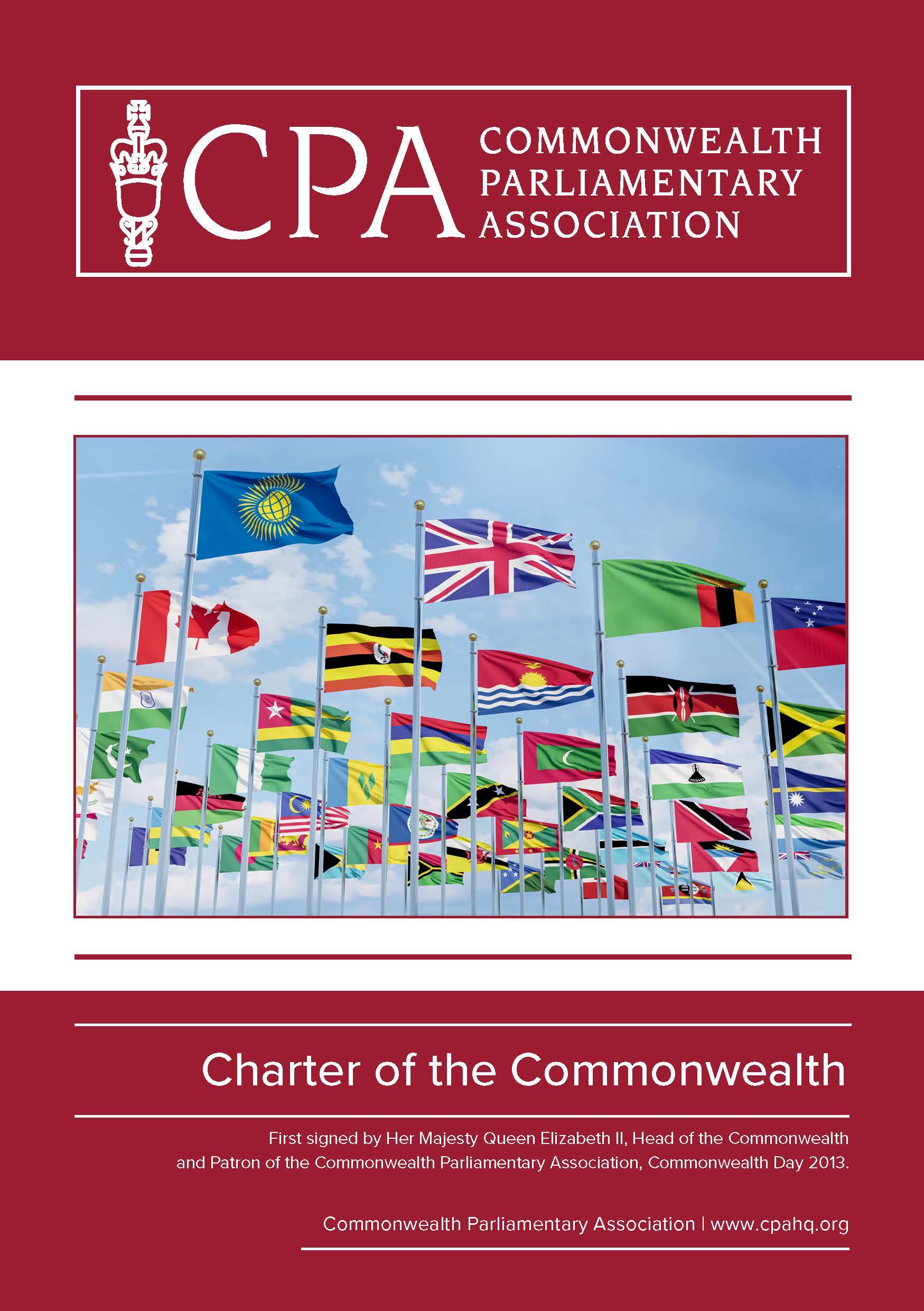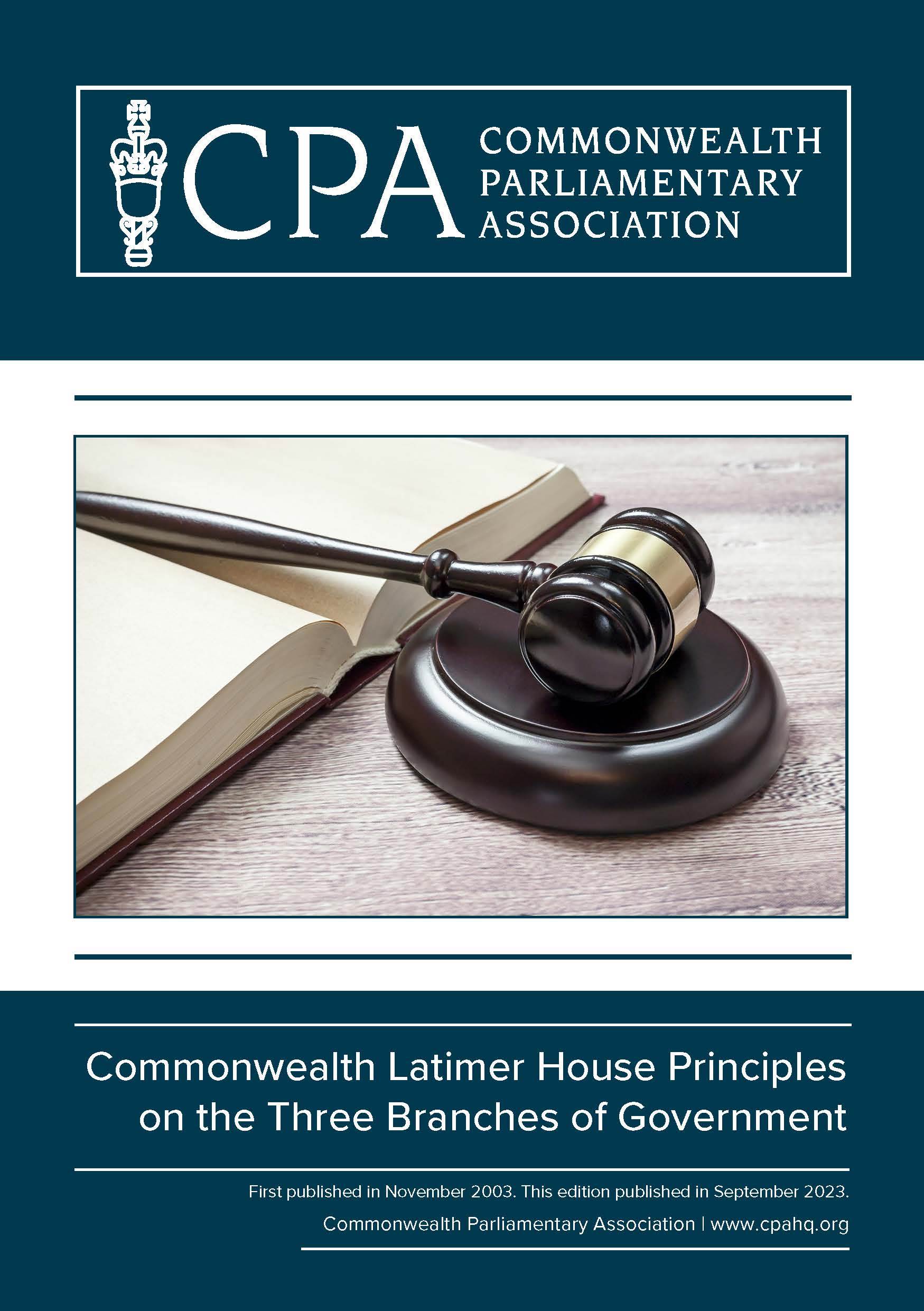The CPA's human rights initiatives include a Working Group on Human Rights, regional declarations and resources including podcasts and articles.

Our Principles
Human Rights


Introducing: The CPA Working Group on Human Rights
Hon. Akierra Missick (Turks and Caicos Islands), Chairperson of the CPA Working Group on Human Rights, tells us about the aims and priorities of the Working Group.
Commonwealth and International Principles
Since its establishment, the Commonwealth Parliamentary Association has endorsed and been a signatory to a number of international, regional and Commonwealth-wide principles, commitments and declarations.
The Commonwealth Charter is a document of the values and aspirations which unite the Commonwealth. It expresses the commitment of member states to the development of free and democratic societies and the promotion of peace and prosperity to improve the lives of all the people of the Commonwealth. The Charter also acknowledges the role of civil society in supporting the goals and values of the Commonwealth.
The signing of the Commonwealth Charter was an important milestone in the history of the Commonwealth, and the values and principles that were agreed gave the organisation a renewed focus in the 21st century. It was the first time that the Commonwealth’s values were brought together in one place and showed the world the serious aims and aspirations of the 56 nations that make up the Commonwealth.
For the Commonwealth Parliamentary Association, as the parliamentary wing of the Commonwealth, many key articles within the Commonwealth Charter influence its work – including Article I on Democracy; Article II on Human Rights; Article VI on the Separation of Powers between the Executive, the Legislature and the Judiciary; Article VII on the Rule of Law; Article VIII on Good Governance; Article IX on Sustainable Development.
The Charter also influences the work of our networks – Commonwealth Women Parliamentarians (Article XII Gender Equality); CPA Small Branches (Article XIV Recognition of the needs of Small States); and Commonwealth Parliamentarians with Disabilities (Article XVI Role of Civil Society) as well as our youth work (Article XIII Importance of Young People).
The Charter is available to download below.
The Commonwealth Parliamentary Association (CPA) played a key role in the establishment of the Commonwealth Latimer House Principles on the separation of powers.
The Commonwealth Latimer House Principles (officially titled: Commonwealth (Latimer House) Principles on the Three Branches of Government) highlight the importance of the separation of powers between the Legislature, the Executive and the Judiciary to ensure effective governance and democracy. The Latimer House Principles provide guidance on the role of the separation of powers in the Commonwealth, its effectiveness in providing democratic governance and the role of civil society.
First published in 1988/89, the Commonwealth Latimer House Principles were further revised and updated in 2003 and again in 2008/09. The Commonwealth Parliamentary Association (CPA) was a partner in the establishment of the Commonwealth Latimer House Principles together with partners: The Commonwealth Secretariat, the Commonwealth Magistrates and Judges Association (CMJA), the Commonwealth Lawyers Association and the Commonwealth Legal Education Association.
These actors remain members of a Working Group. This Group meets regularly to coordinate programmes and activities, to promote the Principles and to examine opportunities to strengthen to Principles and their development.
For further information about the Commonwealth Latimer House Principles on the separation of powers and to find out about programmes available for your Parliament or Legislature please contact the CPA Headquarters Secretariat via hq.sec@cpahq.org.
The Commonwealth Latimer House Principles are available to download below.
View the Practitioners Handbook here.
The Declaration on Parliamentary Openness was officially launched at the World e-Parliament Conference 2012 in Rome, Italy, on International Day of Democracy on 15 September 2012. Before its launch, members of the OpeningParliament.org and parliamentary strengthening communities provided input on the draft Declaration on Parliamentary Openness and its accompanying commentary here. The open comment period ended on 31 July 2012.
The document is accompanied by an extensive compilation of best practices and background information, the Provision Commentary: Download the Declaration here
Since its launch, the Declaration on Parliamentary Openness has been formally endorsed by the Organization for Security and Co-operation in Europe (OSCE)'s Parliamentary Assembly, the CPA, and the First Summit of Legislative Presidents of the Americas organized by the Organization of American States (OAS). It has also been endorsed by a number of national and subnational Legislatures and Parliamentarians.
The Common Principles for Support to Parliaments set out the fundamental principles for planning and implementing programmes to strengthen Parliaments. They were first developed in 2014 by a group of Parliaments and partners convened by the Inter-Parliamentary Union (IPU) and have been widely endorsed around the world. They consist of the points below:
Parliamentary support should:
- Be guided by the needs of parliament
- Take account of the social, economic and political contexts of individual parliaments
- Aim for sustainable outcomes
- Include all political tendencies
- Be grounded in international standards
- Address the needs and potential of women and men equally
- Use local and regional expertise
- Use effective coordination and communication
- Guarantee ethical and responsible conduct by partners
There are 163 endorsements of the Common Principles which include 136 national Parliaments, 8 parliamentary assemblies and 19 partner organisations. The Commonwealth Parliamentary Association endorsed the Principles in 2020.
Download the principles here.
Between 2014 and 2016, the CPA and the Commonwealth Secretariat held a series of seminars on 'The Role of Parliamentarians in the Promotion and Protection of Human Rights' which resulted in three regional declarations – the Mahé Declaration (Africa), the Pipitea Declaration (Australia and Pacific) and the Kotte Declaration (Asia).
The implementation of these three Declarations provides a powerful foundation upon which we can build upon human rights at a CPA Branch level, a Regional level and globally.
The Commonwealth Parliamentary Association (CPA) is a joint signatory to the ‘Commonwealth Principles on the role of the Media in Good Governance’. The Commonwealth Media Principles provide a tool to help the Commonwealth family improve its record for media freedom and accountable government in line with the Commonwealth’s strong commitment to the 2030 UN Sustainable Development Goals.
The Commonwealth Media Principles were launched in 2018 and revised in 2022 as a response to the growing challenges to media freedom and other threats to fair elections and open public debate. The Principles were developed by the Commonwealth Journalists Association and the Institute of Commonwealth Studies together with senior figures from the Commonwealth’s legal and parliamentary community including the Commonwealth Parliamentary Association and other concerned organisations.
To access the Commonwealth Principles on the role of the Media in Good Governance please click here.


